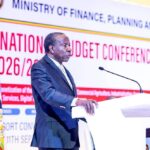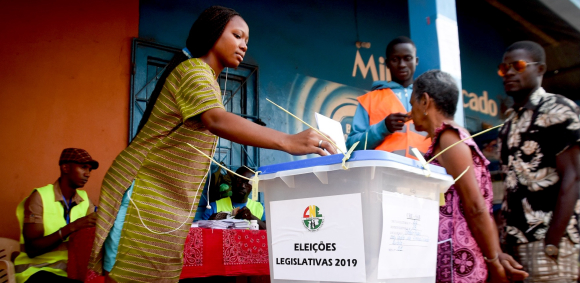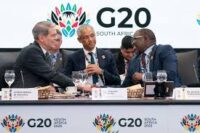South Africa’s Minister of Trade and Industry, Parks Tau, has held crucial talks with U.S. Trade Representative Jamieson Greer as Africa’s most industrialized economy works to secure relief from steep American tariffs recently imposed on its exports. The meeting, confirmed on Friday by Tau’s office, underscores Pretoria’s urgent efforts to resolve what has become one of the most significant trade disputes between the two countries in years.
Last month, U.S. President Donald Trump announced a 30% tariff on imports from South Africa, citing the failure of negotiations to produce a new trade agreement that Washington deemed favorable. The move shocked policymakers and business leaders in South Africa, who warned that the additional duties would hurt key sectors such as manufacturing, steel, aluminum, and agricultural exports, potentially costing thousands of jobs in an economy already struggling with high unemployment and sluggish growth.
Minister Tau’s discussions with Greer are viewed as a last-ditch attempt to roll back the tariffs and salvage South Africa’s trade relationship with the United States, which remains one of its most important markets outside of Africa. According to officials familiar with the talks, the South African delegation is pushing for a compromise that would reopen access to preferential trade arrangements and restore investor confidence.
The tariffs come at a particularly challenging time for South Africa, where economic growth has slowed to below 2% and businesses are grappling with power shortages, rising costs, and weak domestic demand. Analysts warn that the U.S. tariffs could further weaken South Africa’s trade balance, reduce foreign exchange earnings, and threaten industries that depend heavily on exports to the American market.
For Washington, the tariffs are part of a broader strategy by the Trump administration to renegotiate trade relationships on tougher terms, insisting that trading partners make greater concessions to protect U.S. jobs and industries. While South Africa has benefited for years from preferential access to U.S. markets under programs such as the African Growth and Opportunity Act (AGOA), the recent move signals that Washington is prepared to wield tariffs as leverage to extract concessions.
Observers say that the outcome of these talks could set an important precedent for U.S.–Africa trade relations, especially as the continent increasingly looks to diversify its economic partnerships with Europe, Asia, and emerging markets. A failure to reach an agreement could strain bilateral ties and push South Africa closer to alternative markets such as China, which has already expanded its influence across Africa through infrastructure investments and trade deals.
As negotiations continue, South African businesses and trade unions are anxiously awaiting the outcome, warning that prolonged tariffs would deepen economic hardship and erode the competitiveness of local industries. For President Cyril Ramaphosa’s government, securing a favorable resolution is not only a matter of economics but also of political credibility, as it seeks to demonstrate its ability to defend national interests in the face of mounting global trade tensions.














Leave a comment